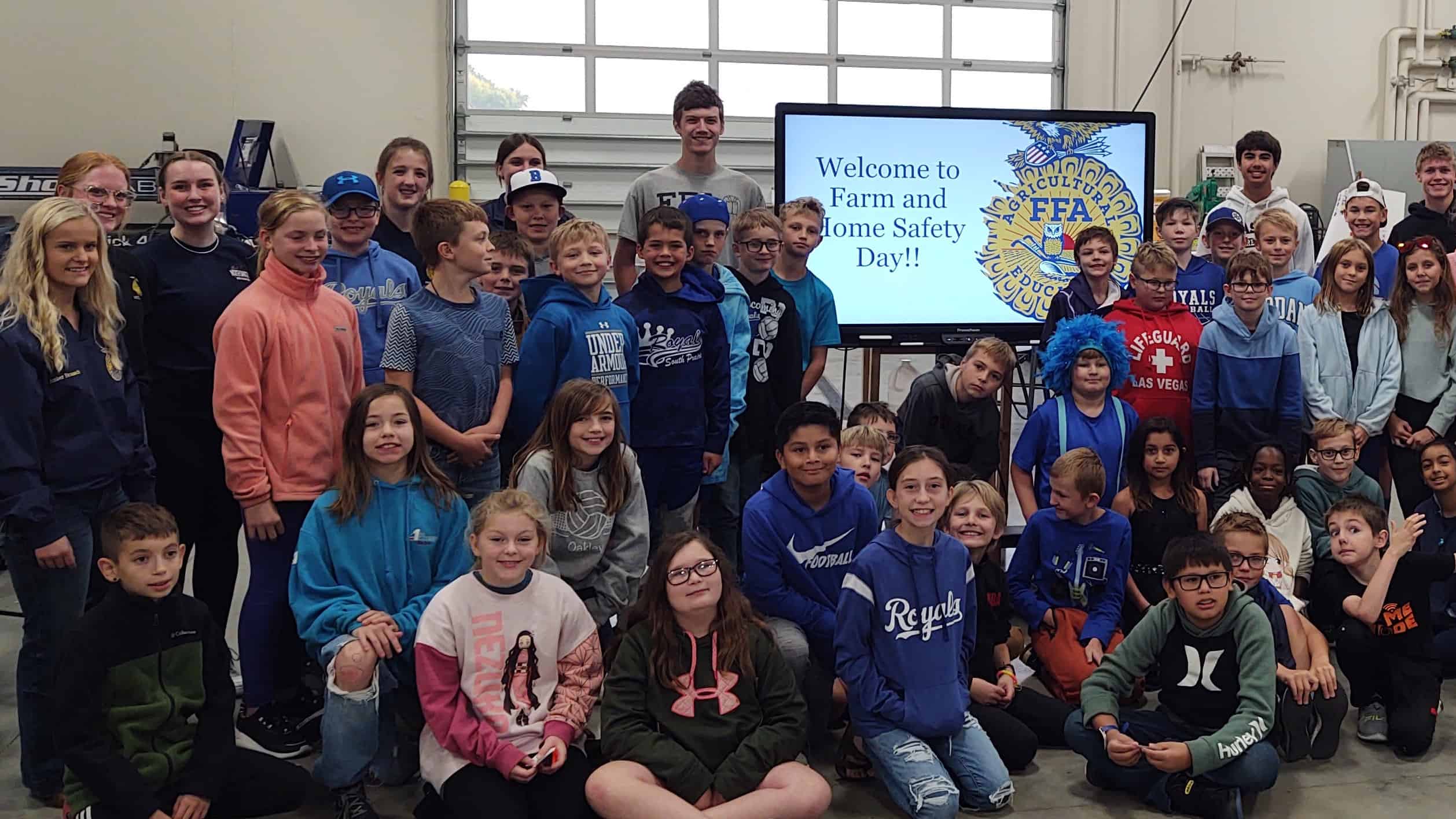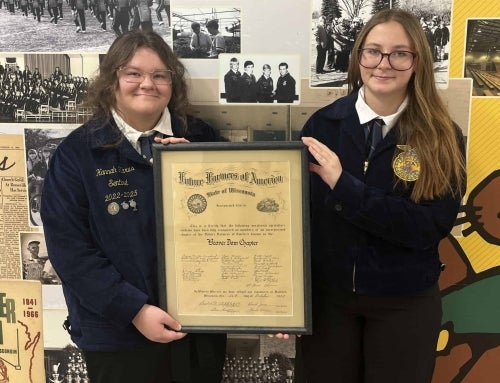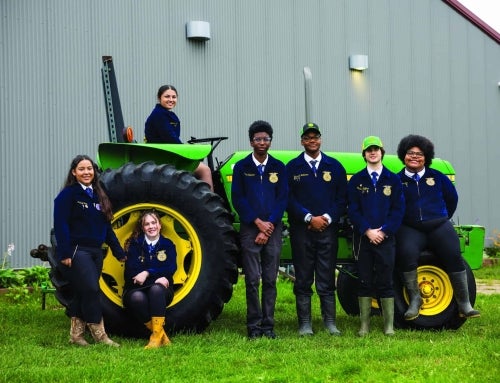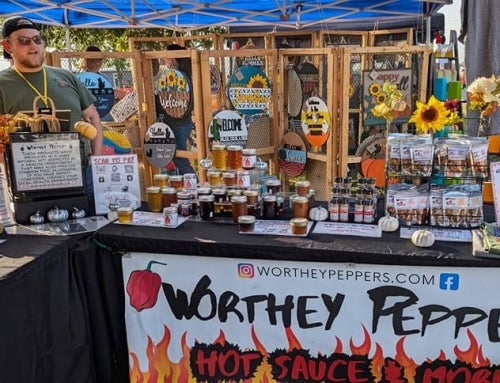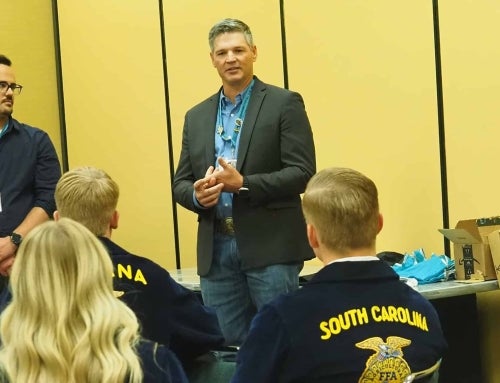To celebrate National #TeachAg Day, an annual initiative hosted by the National Association of Agricultural Educators (NAAE), South Prairie FFA in Minot, N.D., held a Home and Farm Safety Day for fifth graders in its school district. During the event, 10 participating members presented five learning stations, each with tangible tips students could employ if a dangerous situation arose.
“Our members made the event as fun and engaging as possible while also sharing important, potentially life-saving information,” says Ben Seidler, who serves on the South Prairie FFA advisor team and is an agriculture instructor at South Prairie School.
South Prairie FFA members and officers shared the following five safety tips for ATVs (all-terrain vehicles) and UTVs (utility terrain vehicles), fires, livestock, chemicals and food.
1. Wear a helmet and follow the SIPDE acronym.
When it comes to ATVs and UTVs, Secretary Brylee Beeter recommends always wearing a helmet, even if you’re traveling a short distance. Beeter also encourages keeping the SIPDE acronym — which stands for Search, Identify, Predict, Decide and Execute — in mind when behind the wheel.
2. Understand how to properly use your fire extinguisher.
In the event of a small fire, having a working extinguisher on hand is not enough. To be the most effective, Connor Johnson, an FFA member, says it’s essential to remember the PASS method — Pull, Aim, Squeeze and Sweep — when using an extinguisher.
3. Respect large livestock.
To be safe around large animals on the farm, Historian Amber Braasch emphasizes the importance of avoiding loud noises or sudden movements. This can prevent you from startling livestock, which could result in dangerous or unpredictable situations.
4. Store and use chemicals with care.
Because certain household chemicals can create toxic or poisonous gasses when mixed, it’s best to keep cleaning agents separate from one another, says Treasurer Maddie Hogue. She also recommends closely reviewing warning labels on all cleaning products and storing them in a place small children cannot reach.
5. Follow knife safety and sanitation protocols in the kitchen.
If you’re cooking and preparing food, President Natalee Becker recommends exercising extra caution when handling knives. Becker also suggests keeping bacteria at bay by washing your hands immediately after handling raw meat and frequently sanitizing kitchen tools and surfaces.
To access a full list of FFA farm safety archives, visit ffa.org/tag/farm-safety/.

